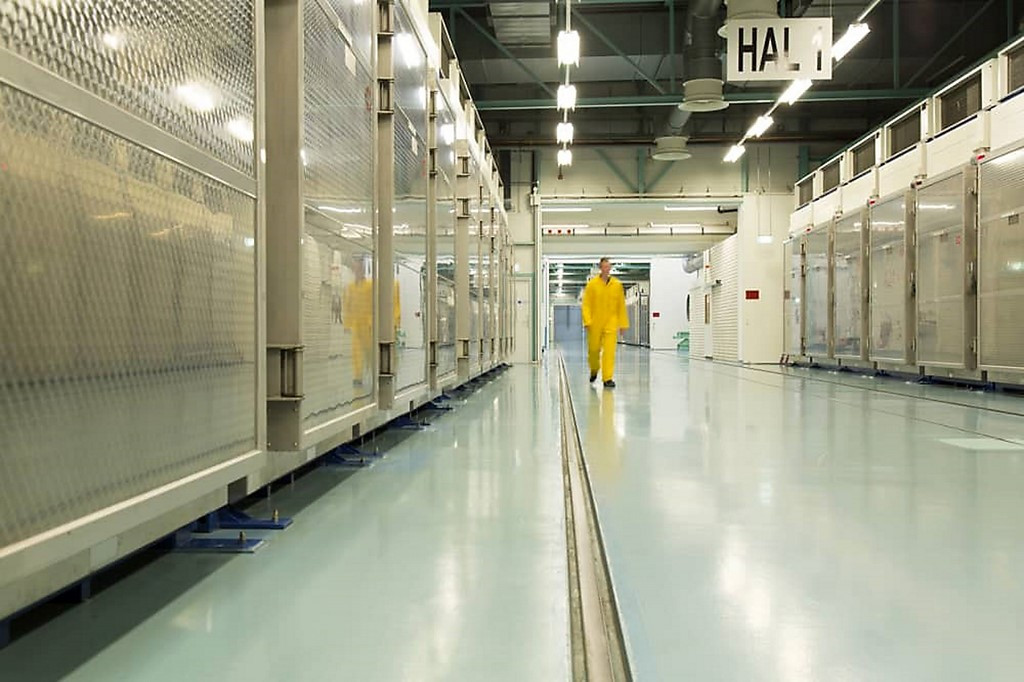New episode in Iran nuclear diplomacy
Iran has used the US withdrawal as an opportunity to increase its uranium enrichment capabilities to exceed the limit set by the JCPOA.
Change Size

J
oe Biden’s inauguration as the 46th President of the United States on Jan. 20 should mark the country’s return to multilateral diplomacy, like he promised in his election campaign.
The Trump administration mocked many multilateral agreements, including the Paris Agreement. The most controversial was Trump‘s decision to withdraw the US from the Iran nuclear agreement, the Joint Comprehensive Plan of Action (JCPOA).
The agreement is between Iran and six other countries: the US, the United Kingdom, France, Russia, China and Germany, also known as “P5+1”. The deal restricts the enrichment level and stockpile of Iran's uranium in exchange for easing economic sanctions on the country.
The international community has warmly welcomed Biden's intention to rejoin the JCPOA. If his plan materializes, Iranian nuclear diplomacy will enter a new episode.
It is quite possible for Biden to renegotiate the JCPOA, but this will not be easy. The Iran nuclear issue goes beyond limiting Iran's capability to produce nuclear weapons.
More broadly, it is very much related to Iran’s geopolitical strategy in the Middle East. In this context, the Iran nuclear issue has become a scourge for the US and its Western and Arab allies. US concerns over Iran's nuclear capability were reflected in its diplomatic maneuvers at the United Nations in New York.
After withdrawing from the JCPOA in May 2018, the US assumed that it was no longer bound by the JCPOA or UN Security Council Resolution No. 2231, which endorsed the agreement. One of the resolution’s main points regulates an arms embargo on Iran until Oct. 18, 2020.
The US pulled out of the JCPOA for two reasons. First, the US did not believe Iran would abide by the deal. It is believed that Iran is hiding nuclear materials, as the Israeli prime minister stated at the UN General Assembly in September 2018.
Second, the Trump administration considered the Iranian nuclear deal, which concluded during the Obama administration, to be detrimental to the US, since the UN arms embargo on Iran would end on Oct. 18, 2020. Beyond that date, there was no guarantee that Iran would not resume developing nuclear and ballistic missile weapons toward broader coverage in the Arab Middle East.
US efforts to reinstate the embargo against Iran, however, failed miserably at the UN Security Council in September 2020. This failure was easy to predict. As foreign policy analyst Saheb Sadeghi said, the US could not reimpose UN sanctions on Iran since it was no longer a party to the JCPOA (Foreign Policy, Aug. 25, 2020). It turned out that most UN Security Council members preferred to adhere to international legal norms rather than accommodating US political interests.
The failure of the snapback initiative puts the US in a dilemma, especially if the Biden administration is seriously considering restarting negotiations on the Iran nuclear issue. There are at least two obstacles.
First, the US withdrawal from the JCPOA has a silver lining for Iran. The US’s absence strengthens Iran's legal arguments: If the US, as the main actor in the agreement, has withdrawn, why should Iran comply with the agreement’s terms? Iran has used the US withdrawal as an opportunity to increase its uranium enrichment capabilities to exceed the limit set by the JCPOA.
Iran’s move is understandable. From its perspective, the JCPOA is no longer binding, or is even dissolved, because one of its parties withdrew. That is why a report from the International Atomic Energy Agency on Nov. 11, 2020 revealed that Iran had significantly increased its uranium stockpile to 2,442 kilograms from the 202 kg limit set by the JCPOA. Iran also increased its uranium enrichment level to 4.5 percent, exceeding the 3.6 percent limit in the deal.
Furthermore, Iranian Foreign Minister Javad Zarif has warned that if the UN sanctions were not lifted by February 2021, Iran would increase its uranium enrichment to 20 percent in line with the legal mandate the Iranian Parliament passed in December 2020 (Foreign Affairs, Jan. 22, 2021).
This new episode of Iran nuclear diplomacy faces a new political reality. In the nearly three years since the US withdrawal, Iran has significantly increased its uranium stockpile and uranium enrichment level. This is the new reality that the US must face.
If Biden wants to renegotiate the JCPOA to restore the conditions agreed in 2015, Iran will most likely play hard to get. Aren’t Iran's nuclear capabilities today much better than they were in 2015?
This is why Iran will not immediately agree to renegotiating with the US. Iran will use its current nuclear capabilities as leverage in later negotiations, whenever they do begin. Iran believes that increasing its uranium stockpile and enrichment level is in accordance with paragraph 36 of the JCPOA, which allows that Iran could “cease performing its commitments under this JCPOA” if “any or all” other parties to the agreement “were not meeting their commitments”.
At this stage, the US and the other countries of the JCPOA face a dilemma: Iran has increased its nuclear capabilities far above the limits set by the deal, precisely because of the US’s arbitrary withdrawal from the JCPOA.
Biden's intention to renegotiate the JCPOA’s restrictions thus opens a new episode of Iran nuclear diplomacy.
His initiative to restore the Iran nuclear deal through multilateral diplomacy deserves appreciation. But in diplomacy, good intentions are not enough. A realistic and objective assessment of the situation is equally necessary.
That Iran's current uranium enrichment level is an objective condition must be considered. This fact could prove to be the obstacle to future nuclear diplomacy with Iran.
***
The writer is Indonesian diplomat assigned to Austria and the United Nations in Vienna; lecturer of the international relations doctoral program at Padjadjaran University’s social and political sciences school, Bandung.









